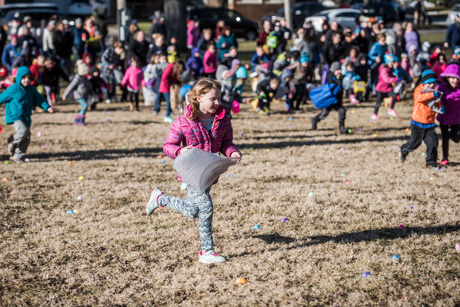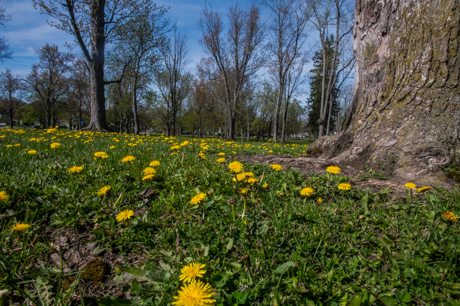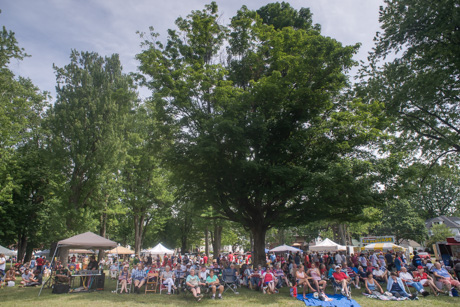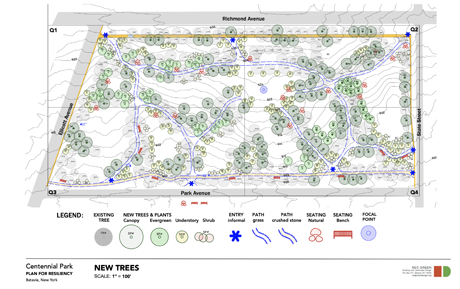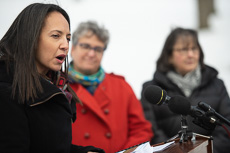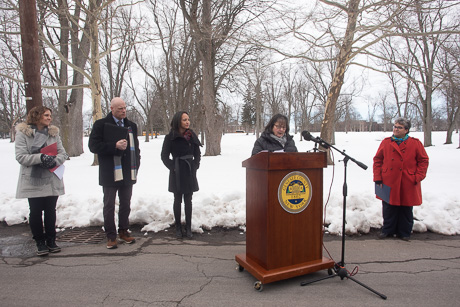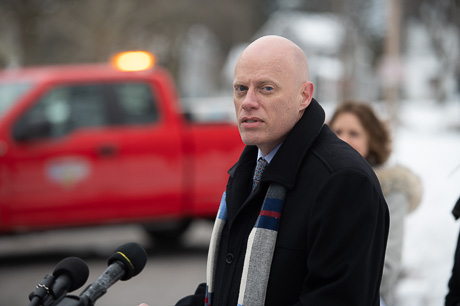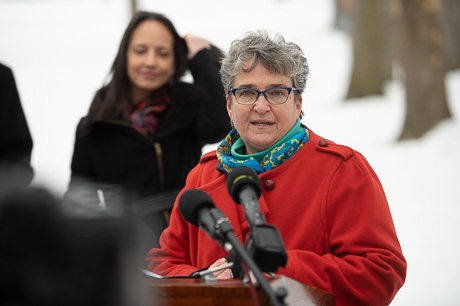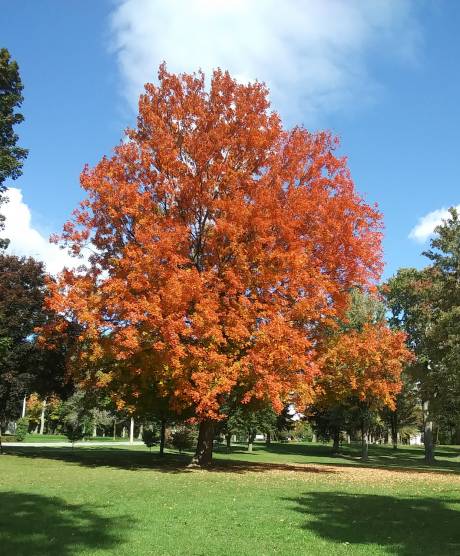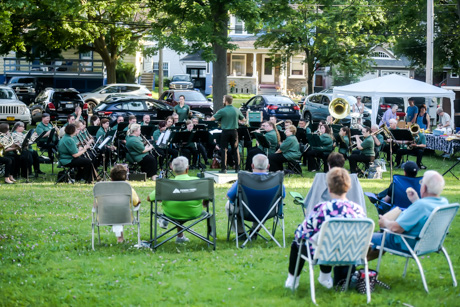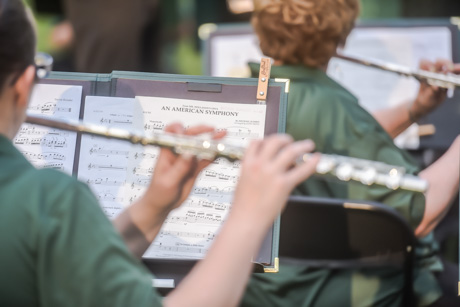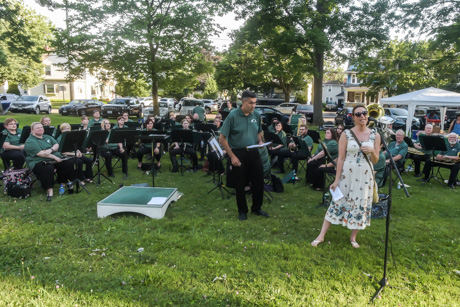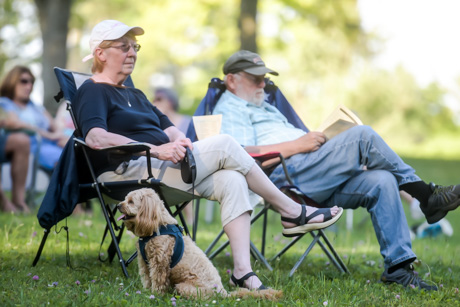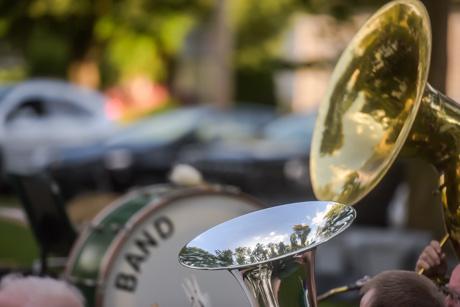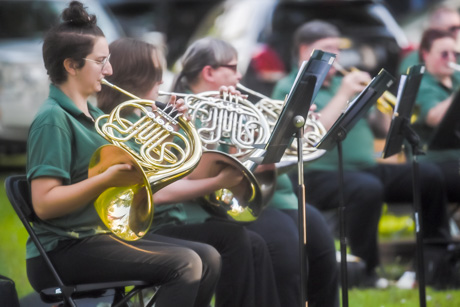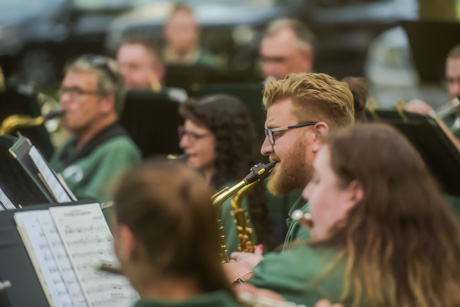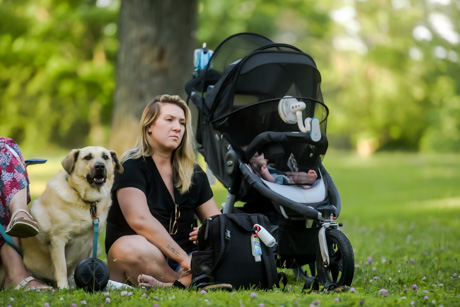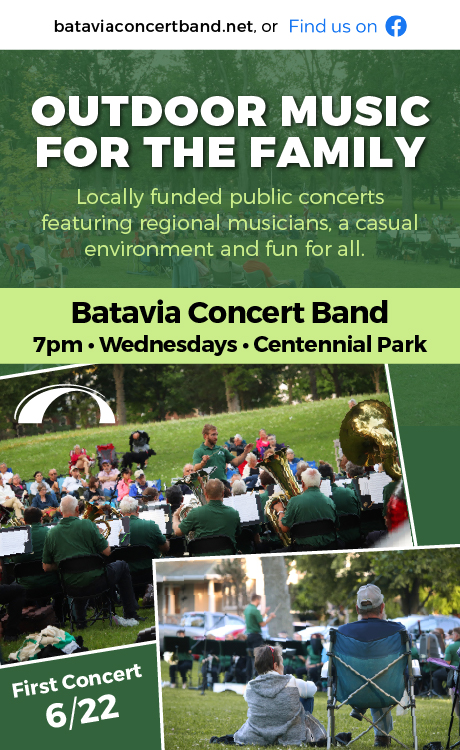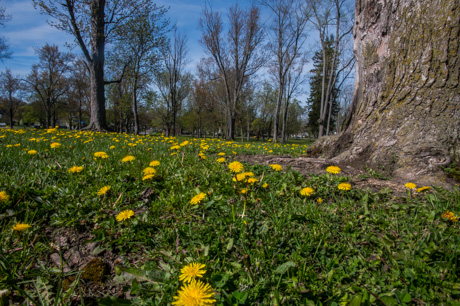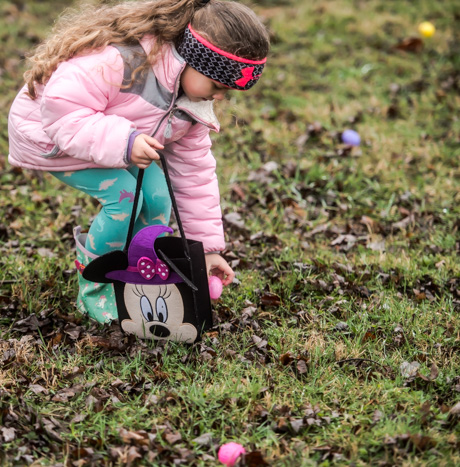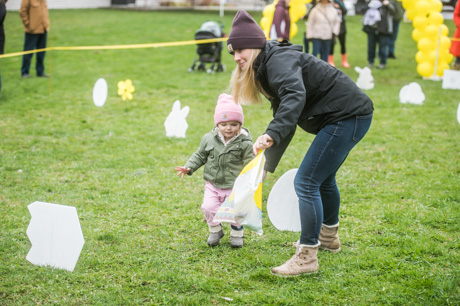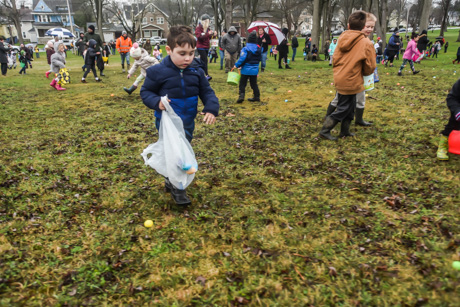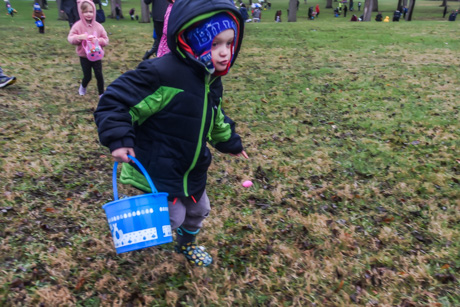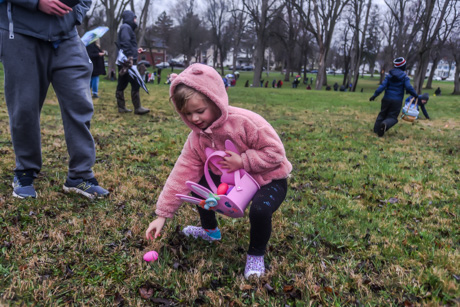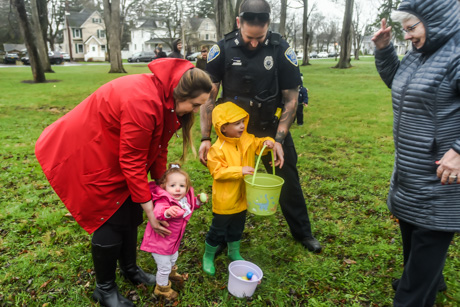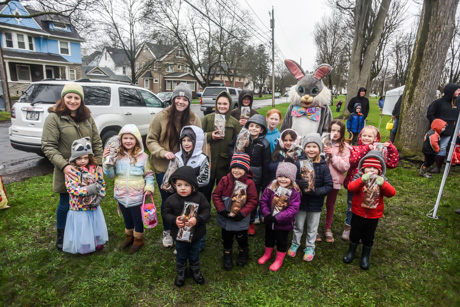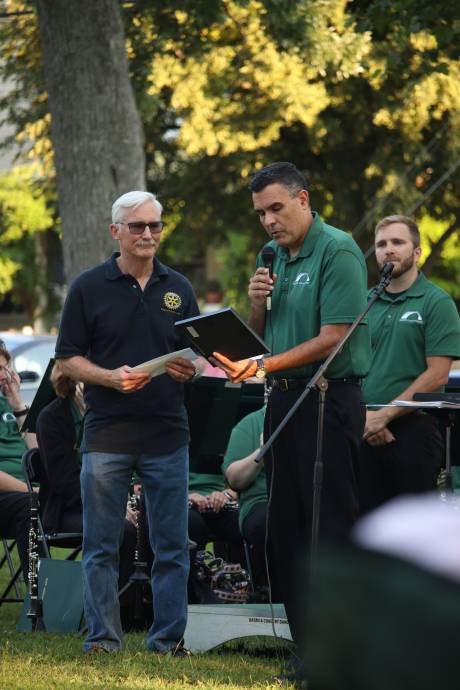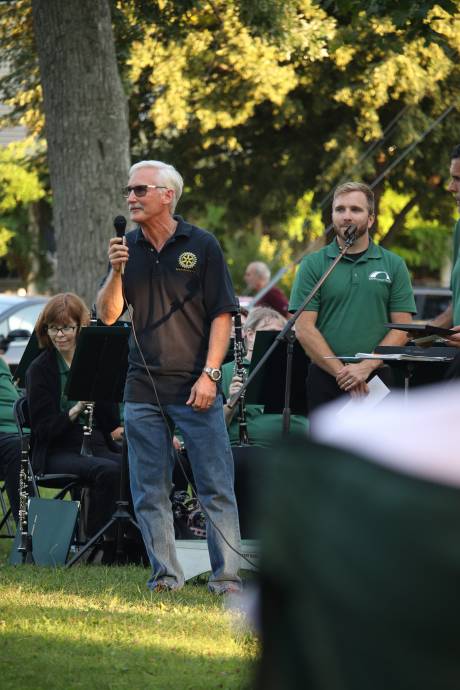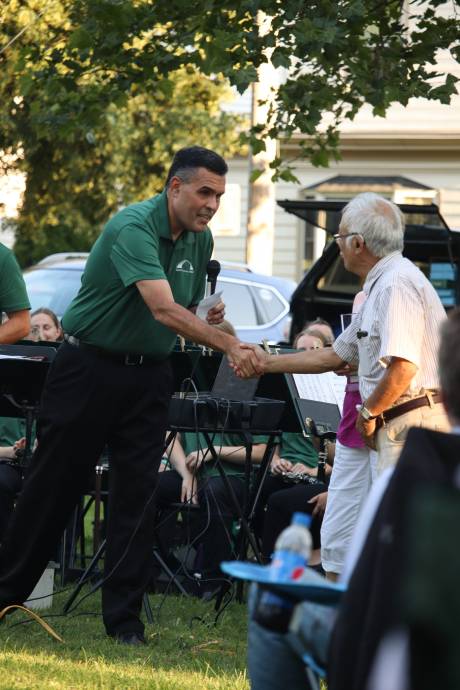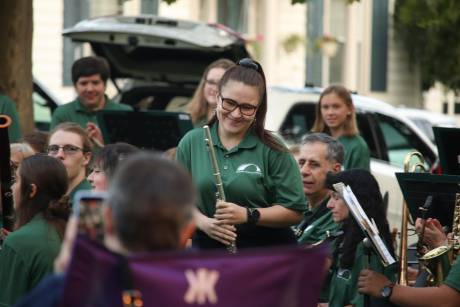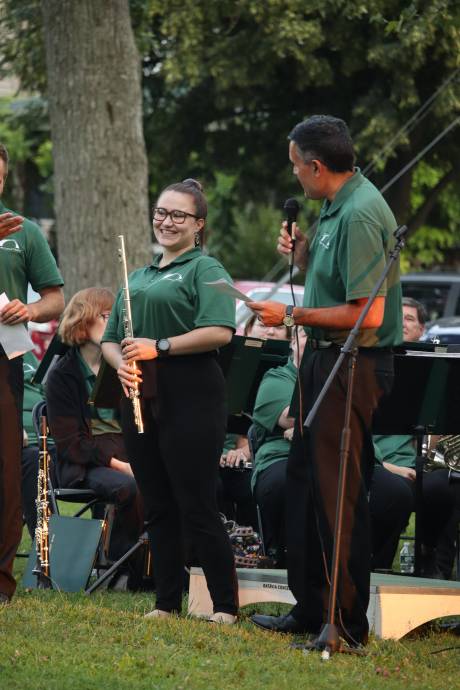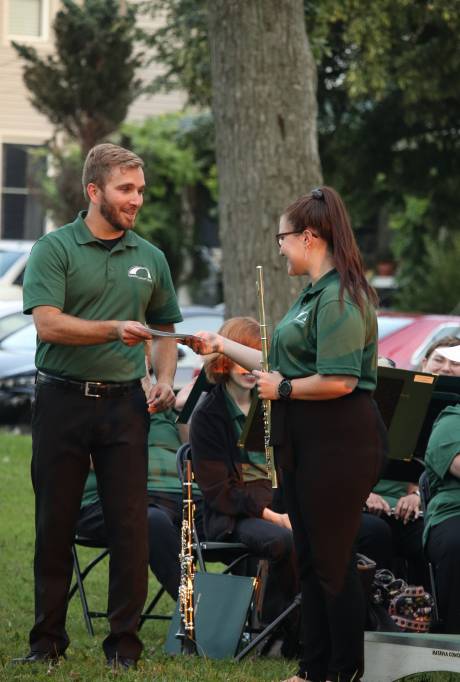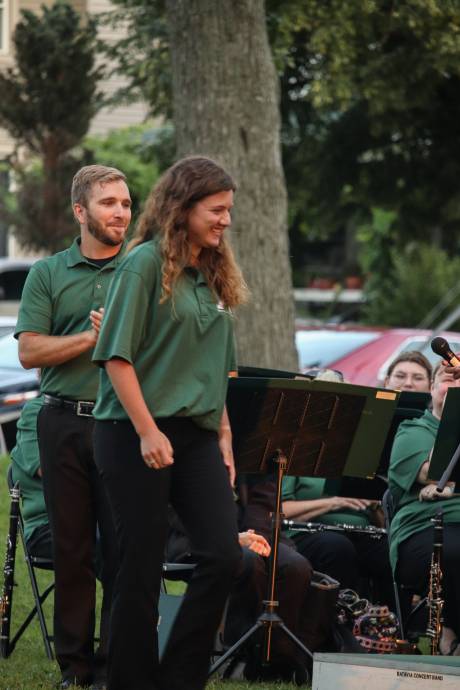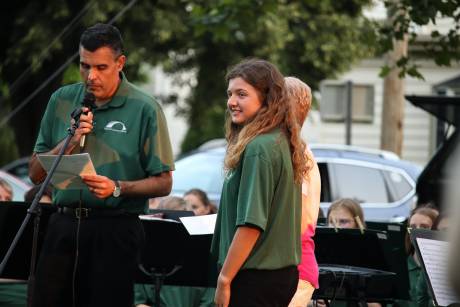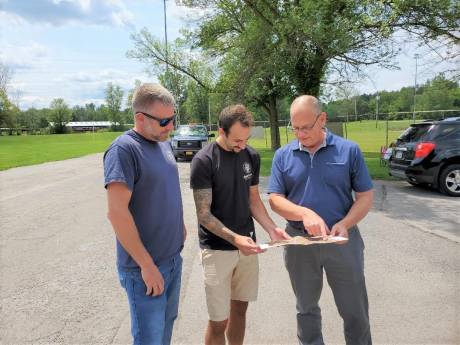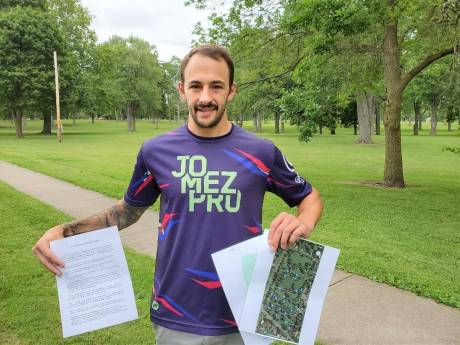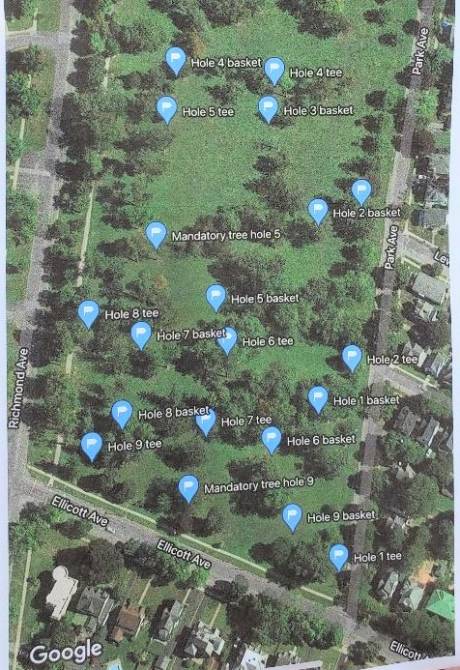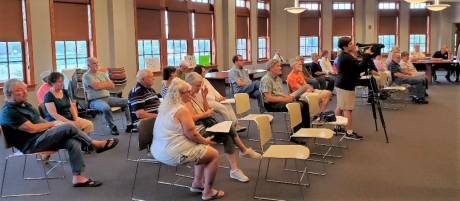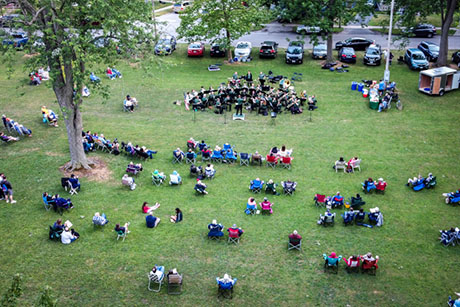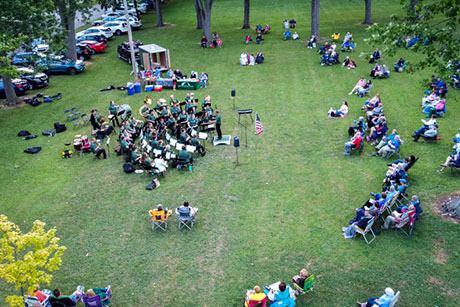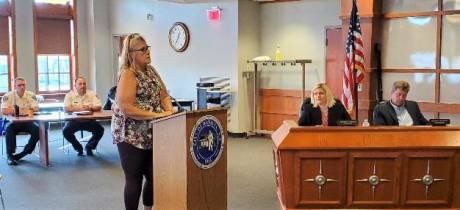Learning that Batavia lawmakers apparently have squashed his vision of placing a disc golf course at Centennial Park is not sitting well with 27-year-old Phillip Boyd, the Hart Street resident who pitched the idea at a City Council meeting in late May.
This past Monday, Council members – responding to complaints from homeowners living near the tree-dominated park in the northwest quadrant of the community – agreed that Centennial Park is “off the table” as a potential location for a nine-hole layout for a sport that has gained in popularity in recent years.
SIDEBAR: Western New York: A Hotbed for Disc Golf
Boyd is an avid disc golfer who competes in a league at courses in the Buffalo/Niagara region and has played at courses closer to home, including one at Hartland Park in Bergen. He said he’s not giving up on his push to have a disc golf course in Batavia and sees the 14-acre parcel across from the New York State School for the Blind as the perfect place.
“I’m definitely going to still try to get it there,” he said on Friday. “The main thing that I’m disappointed in is that the argument that they have is ‘keep it a green park’ when it has never truly been a green park. And, also the idea of the traffic being around there.It’s a park. It’s not busy now and parks are typically busy.”
Boyd said numerous people have told him that Centennial Park is rarely used.
“That’s the thing that should be changed -- to actually use a giant open space, and actually use it in Batavia. We have no activities around here. There’s nothing to do; everyone has to go to Buffalo and Rochester,” he said.
“These smaller towns like Bergen, Pembroke; they can do these, but Batavia can’t. That’s why we’re so far behind and why Batavia is a declining city. We aren’t the true hub of Genesee County. Everyone’s leaving Batavia because there is nothing to do here.”
JANKOWSKI: FOLLOW THE PROCESS
City Council President Eugene Jankowski Jr. said he and his colleagues do support events and activities, regularly approving requests from community organizations that are submitted to city management and staff.
“There’s a procedure and a process for these types of things and putting in a disc golf course at a city park is no exception,” Jankowski said. “Mr. Boyd was requested by Council to hand over his plans and documents to the city manager (Rachael Tabelski) for review and to get that process started, but he has yet to do so.”
Jankowski said Boyd appeared at two Council meetings, stating his case for disc golf during the public comments session.
“He was asked twice to submit the paperwork to the city manager, but instead he showed up at two City Council meetings and has yet to submit his written plans,” he said.
When this was mentioned to Boyd, he said he intends to hand in the information (sketches and a detailed course layout at Centennial Park) on Monday – July 19th, the deadline that he says he was given by Tabelski.
The Council president said his main issues with Centennial Park are that it has no facilities -- specifically bathrooms and amenities that are available at other city parks -- and that the only parking is along city streets.
“We’re willing to work with Mr. Boyd to find a better place, including working with our partners at neighboring towns and with Genesee County to try to make this happen,” Jankowski offered. “We’re not against disc golf, and are willing to look at other alternatives.”
BOYD: ‘SOME AREN’T OPEN TO CHANGE’
Boyd said he has walked the other parks in the city and finds that none of them, except maybe Williams Park (depending upon how much land the city owns at that location), would be acceptable.
“The Council president said that Centennial is off the table,” Boyd said. “If he is going to do that for 150 signatures and 12 people who showed up at the (July 12) meeting, that’s a problem. If I come with as much support as I have – a lot more than 150 signatures -- and he is still going to stand with that, then you’re not really being open to the idea of change in Batavia.”
“If Batavia is the hub of Genesee County, the lone city, we should be the one to lead the way for all the towns. Why do so many towns in our area have more activities than the city? There’s no reason for that.”
Boyd said he “feels comfortable with the amount of support he has and it’s building,” noting that he has reached hundreds of people through various social media platforms.
Jankowski questioned Boyd’s petition, which he said is on change.org.
“That’s open to anyone in the country,” he said. “How would that have anything to do with people who live here?”
DIFFERENCES OF OPINION
Residents of Ellicott Avenue and Park Place, two of the streets that border Centennial Park, came to last Monday’s meeting and urged Council to keep the park as it is – without any permanent structures other than trees – now and into the future.
Some brought up the “negatives” associated with disc park, but most were there to profess their affection for the park in its current state.
Before they had a chance to voice their opinions, however, Jankowski said that he had received information that Boyd had backed off on having the course at Centennial Park due to the neighbors’ concerns and was open to other locations.
When that was conveyed to Boyd yesterday, he said that he never agreed “with just dropping this.”
“I said if there was a good enough reason why they didn’t want it here other than it is a green natural park, which technically it is not, (then I would listen),” he said. “But it hasn’t been that at all.
"They say traffic. If you put anything in any public space, that public space will be used more. Therefore, there will be more traffic. If they have a better opposition except just those small things, I’ll leave it alone.”
He then said that a nine-hole pitch and putt golf course used to be at Centennial Park in the 1960s.
“No one wants to bring up that golf balls do way more damage than a disc could ever do,” he said. “The park used to have a fountain and a pond before things got changed over. Then, in time it was stopped and taken care of by New York State and then they gave it over to the city.”
CITY IS WAITING FOR INFORMATION
Tabelski said that an email from Maintenance Supervisor Ray Tourt indicated that he spoke with Boyd, who said he was willing to look at Kibbe and Williams parks if Centennial wasn’t available.
“The confusion stems from the fact that Phil has yet to submit the information that the Council president and staff has requested,” she said. “Even taking Centennial Park out of the mix, if you look to work with the city, there is a process to follow.”
She said that process includes review of any requests by the city manager, department heads and city attorney, considering financial and insurance implications. Once the review is complete, it then is brought forward to City Council for discussion and potentially to a vote.
“We’ve engaged with him and we’re waiting for his plans and documents,” she said, reiterating Council’s decision. “City Council will not consider Centennial due to its historic use and importance to the community.
“It was clear that it was the strong sense of Council that it is inappropriate. Phil has not reached out to myself or the Parks Department to further discuss an alternative location.”
DISC GOLFERS: A RESPONSIBLE GROUP
Boyd defended the disc golf community, one that he says is “very big on being as respectful as possible” and provided examples where disc golfers have won over those who initially were against them. He said disc golfers police each other and prioritize keeping the courses in top shape and free of debris.
“If somebody notices that someone does something not typical of our community, they’ll speak up to them and say, ‘Hey, that’s not what we do. Don’t make us look bad. Please refrain from doing that, and do it this way,’ ” he said.
He said disc golfers carry out the trash they carry in where no garbage cans are provided, and some disc golfers walk the courses to pick up trash left behind by other park goers.
“There’s plenty of room at Centennial Park,” said Boyd, comparing it to Pine Woods Park in North Tonawanda. “When they first started to put a course at Pine Woods, the residents in the neighborhood were so against it. They had picket signs in their front lawns that read, ‘No to disc golf.’”
“But eventually they got the course approved and they put in a nine-hole course. Two years after that, even after they had continued pushback from the neighborhood, the city approved an increase to an 18-hole course because the city realized how many people were coming to play. It was huge; the park was actually being used again.”
He said he mirrored his course layout after Pine Woods because it is similar to Centennial Park.
“The way I’ve set it up is that there will be room for other activities and still have disc golf,” he said, adding that it would take up about two-thirds of the park, stopping short of the hill used for winter sledding.
He said that he told Tourt that he walked all of the other parks and “there’s no other true park in Batavia other than Centennial that will give you a disc golf course that will bring anyone to it.”
CENTENNIAL? PAR FOR THE COURSE
Boyd said his nine-hole course works so well at Centennial Park because of the abundance of trees.
“You can set trees up in a fairway to make it more difficult hole. You can make holes so much shorter as long as the trees make it more difficult,” he explained, showing a printed Google map of the proposed course. “A few friends and I have placed portable baskets at the park and played the course a few times, and it works out great.”
He said the first hole starts at the corner of Park and Ellicott and is angled inward toward the park to avoid the road – a par 3, 300-foot shot. He said he tried keep everything away from the roads to avoid any possible danger.
“It works down Park Avenue for two of the holes and the third hole comes back toward the center of the park. The fourth hole goes about 50 feet short of the walkway and hole five brings you back down to the middle of the park,” he said.
“Six and seven are in the middle of the park, eight brings you to the outside and hole nine is up at the corner of Richmond and Ellicott and brings you down to where you first started.”
He said the average hole length is about 225 feet.
Hartland Park in Bergen has a nine-hole course that is similar to the one Boyd has drawn up. There, he said, disc golfers coexist with those walking their dogs and using the park for other purposes.
“There was opposition at first from people saying they didn’t want discs thrown in their backyards,” he offered. “That’s not the case anymore because people realize that the disc golf community is a good community, and there’s really no true harm in it. And people still walk their dogs there; I see them while I’m playing.”
COUNCILPERSON-AT-LARGE WEIGHS IN
Councilperson-at-Large Robert Bialkowski said he has been trying to educate himself about disc golf, talking to managers and officials at Darien State Park, Beaver Island State Park on Grand Island, and Lincoln Park in Buffalo – places that offer the activity.
He said the consensus is to have these courses away from the general public.
“The manager at Darien Lakes State Park said they have it on trails that aren’t used much,” Bialkowski said. “And the discs aren’t Frisbees; they’re special discs for different uses – short range, long range. If you get hit by one, it’s going to sting.”
He also said courses should be equipped with trash cans and some need additional landscaping to make them work.
“The manager at Lincoln Park said they have an 18-hole course that used 16 to 20 acres and it works out pretty well, except for one part that is near a picnic area,” he said.
Bialkowski explained that Batavia’s smaller neighborhood parks may be able to support a disc golf course, but noted that baseball and other athletic fields have taken space that previously was used for walking and hiking.
GCC COULD BE A POSSIBLE SITE
As far as Centennial Park is concerned, he said citizens have spoken, they enjoy the park as it is and Council has rendered its decision.
“Being an at-large councilman, I represent all of the citizens of the city,” he said. “We have to do our homework. I’m disappointed that Mr. Boyd isn’t satisfied with our process, but that’s the way it is.”
Jankowski said that he heard there was movement toward putting a disc golf course at Genesee Community College and encouraged Boyd to look into that as well as other possibilities.
“There might be better options out there and I find it interesting that he is so focused on one area and not any other opportunities that might be even better,” he said. “Let’s look into it.”
Boyd, in response, said he is aware of a course proposed for GCC and is assisting those who are spearheading that effort as well.
"They were having problems with finding funding and I’m now working with them to get the funding and quotes for the baskets, tee pads and signs with the people I have connections with," Boyd said, adding that it opens up the prospect of having disc golf courses in both the town and city.
Previously: Residents speak out against disc golf at Centennial Park
Photo at top: Phillip Boyd, wearing his disc golf jersey, displays his plans for a course that he hopes will find its way to the City of Batavia. Photo at bottom: The course that he designed for his preferred destination -- Centennial Park, which has been removed from consideration by City Council. Photos by Mike Pettinella.
